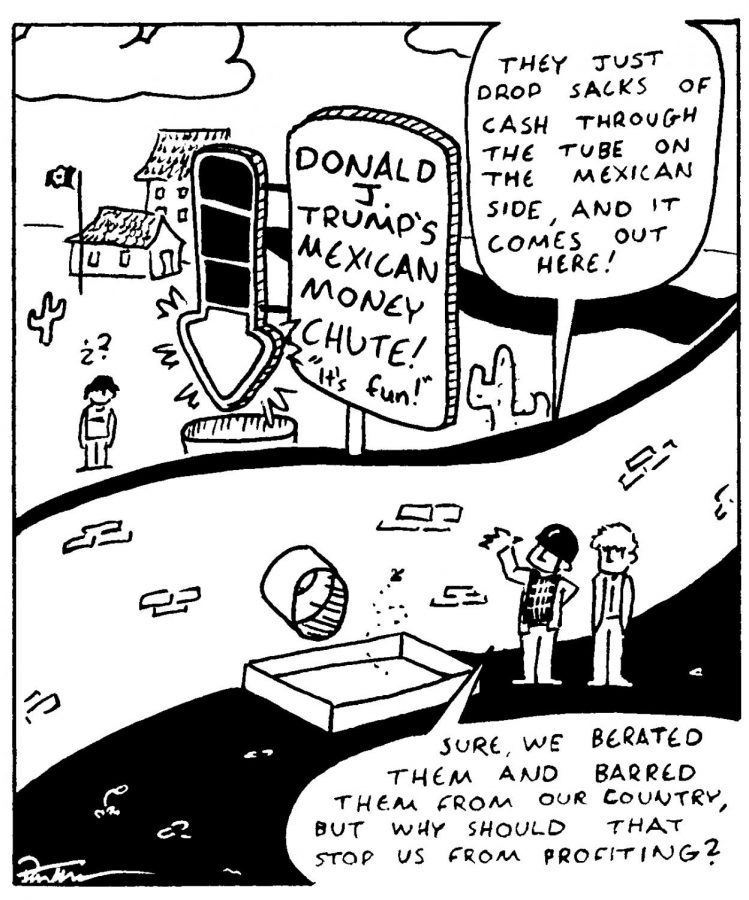Column: Southern border is not a dilemma, rather an opportunity
President Trump’s call to close our southern border is not only illogical, but mutually destructive for both the United States and Mexico.
April 10, 2019
Two weeks ago, President Donald J. Trump threatened to close the southern border, blaming Mexico for the increased number of migrants seeking entry into the United States.
In a series of tweets, Trump blamed Democrats for what he considered “weak” immigration laws and billions of dollars lost to Mexico in trade yearly. One of his tweets scolded Mexico for making “a fortune off of the U.S.” comparing those figures to what he considered a relatively smaller amount of money appropriated for border patrol.
In response to his party’s major outcry against this plan, Trump back-tracked on his threat to close the Mexican border, choosing to give them a “one-year warning” to halt the flow of illegal immigration into the United States.
Trump claimed to be a successful businessman, but his reputation of being the “greatest dealmaker” is unfounded. Mexico is the United States’ third largest trading partner, due in part to the North American Free Trade Agreement, or NAFTA, which eases tariffs and regulations between the United States, Canada and Mexico. Trump has long pitted the United States against Mexico, threatening the country with economic consequences for what he has expressed malicious intent to ship “their worst people” into our country.
The president’s call to close the border is not only illogical, but economically disastrous. More than $1.5 billion in trade crosses the border every day. Trucks deliver produce and manufactured items, and many enterprises in both countries rely on the southern border to conduct trade. Closing the border would hurt both Mexico and the United States by inhibiting the economy and affecting major industries such as the automobile and retail sectors. According to a study by the USDA in 2016, Mexico provides 43 percent of U.S.-consumed produce. Even if the border were closed for just a day it would impact how communities operate on both sides of the border.
Beyond the economics, Trump’s threats incentivize traffickers in Central America to convince desperate migrants to cross the border before the president closes it. Yes, that’s right. Trump’s efforts to dissuade migrants from attempting to enter the United States is driving more migrants to act, posing further issues, such as overcrowded detention centers and dire humanitarian consequences. Worse yet, Trump would spin it as a greater threat to Americans, reinforcing a baseless paranoia to rally his supporters.
Instead of a legal dilemma over who is eligible to cross the border, Americans should focus on creating a mutually prosperous and economically viable situation at the border — especially when businesses on both sides rely on commerce from both countries.
There is no economic, political or social logic that justifies how we treat immigrants at our southern border. Rather than closing our borders, there should be efforts to reconcile with Central America and the boundless potential of economic opportunities it holds.
Trump’s statements on closing our southern border were short on details. His misunderstanding of economic and social interactions with Mexico reveal him to be malicious, xenophobic and ultimately racist.
Americans can submit to economic disaster, inflame international relations and exacerbate the humanitarian crisis we created, or Americans can choose to maintain the open border with Mexico. Closing the border fails to accomplish anything beyond fanning the flames of racism and xenophobia.


















